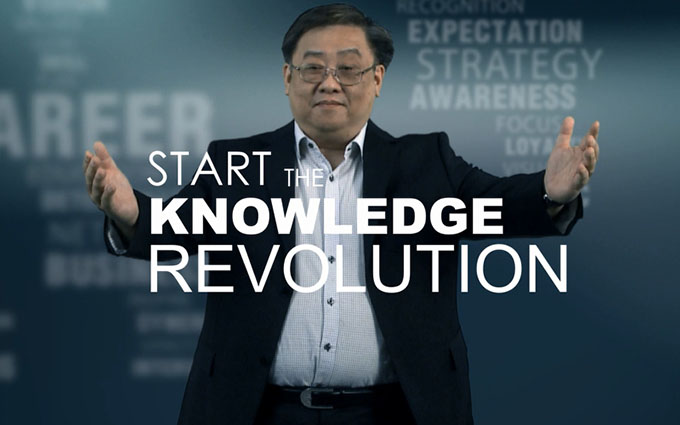In this digital era, Massive Open Online Courses (MOOCs) drive a new wave of learning. Prof. Eric Tsui, professor at the Department of Industrial and Systems Engineering, Associate Director (Business Development) at the Knowledge Management and Innovation Research Centre, Chair of Advisory Committee on ELearning and Chairman of PolyU MOOC Steering Committee, shared his views on MOOC and its latest development at PolyU.
What are your views on the emergence of MOOCs, both globally and locally?
Started in North America, MOOCs have been around for four years. Many elite institutions including leading US and European universities are widely engaging in MOOCs to enhance their brands, extend the reach of their education, and identify and attract top quality students. From an institutional perspective, there are undoubtedly ample opportunities for brand enhancement, pedagogic experimentation which lead to delivering personalized learning, sourcing for academics and students as well as business model innovation.
Tens of millions of learners worldwide, regardless of their background and locations, can now have free access to quality education which traditionally can only be accessed by attending institutions with hefty tuition fees. From learners’ perspective, it is also a great pedagogical turn. Thanks to MOOCs, public knowledge of many topics and disciplines has undoubtedly been enhanced.
In Asia and particularly in Hong Kong, the significant impact of MOOCs is just starting to be felt. Now, quite a few leading Asian universities in Hong Kong, Korea, Japan and mainland China, are also offering MOOCs. Indeed, this creates a platform mushrooming East and West in pedagogy and knowledge exchange. I believe it is very good timing and meaningful for PolyU to embark on the MOOC journey.
What are the major differences between MOOC and traditional online courses?
The most significant differences are that, traditional online courses charge tuitions, bear credits and limit enrollments. MOOCs, on the other hand, are usually free and non-credit bearing.The soul of MOOC is the interweaving of education, multimedia and social networking. MOOC courses are usually designed with the learner in mind. MOOCs can often be interactive; for example, videos may pause to stage a quiz to ensure learners’ understanding.
What are the initiatives in developing MOOC at PolyU?
To offer a professional and appealing MOOC course, course contents (e.g. adding videos) and presentations matter a lot. We have spent a lot of efforts in designing and producing videos in a MOOC. The University has dedicated a studio with technical expertise primarily for supporting the development of MOOCs.
In the coming months, three MOOCs will be offered via the MIT edX platform. Commencing in late August 2015, a course titled “Knowledge Management and Big Data in Business” taught by myself, Prof. W.B. Lee and a team of international experts will examine the role of knowledge management, the rapid and massive accumulation of data in the cloud, the transition from data to information to knowledge, Big Data projects, learning analytics and how to enact innovations with cloud services and more.
In August, School of Nursing will offer a MOOC on “Human Anatomy” in which learners can explore the structure of the human body through a real life case scenario of stroke, from the perspectives of six healthcare professionals.
For those who wish to succeed at job interviews, the English Language Centre will offer a MOOC on “English@Work in Asia” before the end of this year. Apart from obtaining job application advice, creative CVs and letters templates, learners can also discover how to stand out and ace their job interviews.
Interested parties can now sign up for the first two MOOCs via the MIT edX web site or search their introductory videos on YouTube and “HKPolyUx” for more details.
